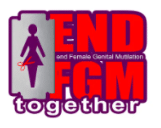

FGM in White Communities
Mojatu FGM Team
Female Genital Mutilation is not an issue isolated to African and Middle Eastern communities. It has occurred in White Christian communities for centuries, dating back to the 19th century as a cure for masturbation. Despite not being mentioned in any religious text, FGM tends to be associated with Black, Middle Eastern and Muslim communities. However, in recent years a number of white Christians in America have begun to come forward and tell their stories and experiences of undergoing FGM. They hope that this will help to raise awareness of how widespread the issue is and encourage others to not be afraid to tell their stories too.
The practice of FGM in communities across the world is form of gender- based violence which is used to control young women and girls’ sexuality and reaffirm men as dominant figures in society. In 2016, US citizen Renee Bergstrom tells her story of having her clitoris removed in a church clinic when she was 3 years old. Although this sounds like a rare case, FGM is swept under the carpet and not spoken about in Western communities, with many survivors maybe not realising that they have experienced any wrongdoing at all.
Within Conservative Christian communities in America, religion is sometimes used to scare people into keeping secrets or doing what they are told, with threats that if they do not cooperate, they will go to hell. One survivor notes that they believed that FGM was something that all girls go through until they were an adult, attended nursing school and learnt about human anatomy. FGM within Christian communities is used to establish a women’s submission to men and celebrate their obedience to God. It controls women’s sexuality and encourages the narrative that women’s sexuality and masturbation is a sin. Currently, FGM is not criminalized in 21 US states. It is so important for people and policy- makers to realise that this is not an issue confined to African and Muslim communities but one that affects everyone.
Increased dialogue and awareness of FGM taking place in all communities can help to prevent more young girls and women from becoming at risk. According to the United Nations, 200 million women and girls have undergone FGM. More discussions around FGM can help survivors speak up and question what happened to them, stopping the cycle and helping self- empowerment.

